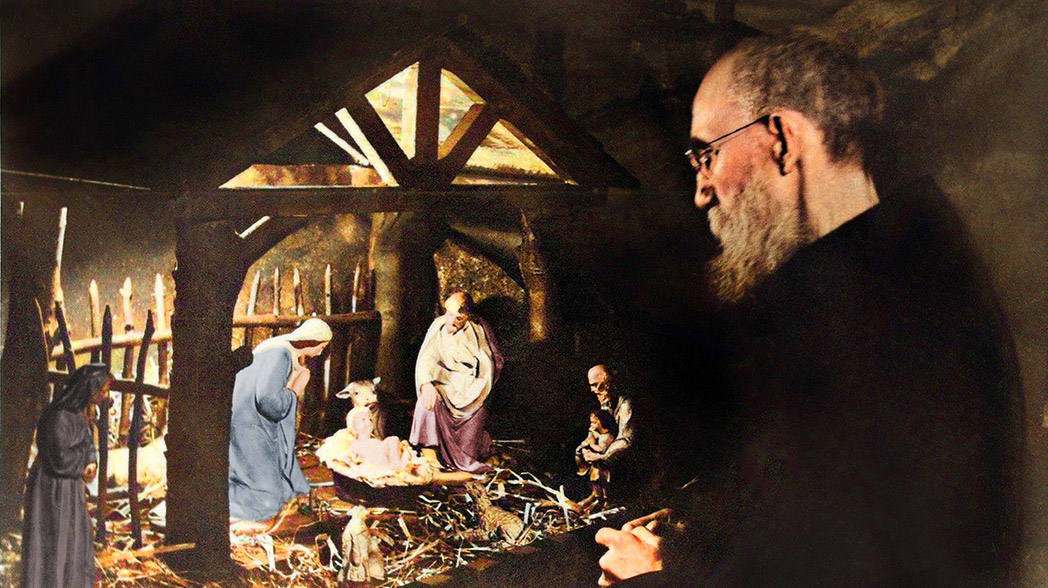Mutual Hospitality
Blessed Solanus Casey

By Br. Peter Chinnappan, OFM Cap., Assistant Director of the Solanus Casey Center
Mexican tradition has a beautiful celebration of hospitality. It is called Las Posadas which means (lodging, sheltering, or accommodation), in this case, it refers to the inn from the Nativity story. This celebration usually lasts for nine days which represents the nine-month pregnancy of Mary, the mother of God. Two people dress up as Mary and Joseph and certain houses are designated to be “inns.” They travel to one house each night for nine nights. At each house, the resident responds by singing a song, and the pair are recognized and allowed to enter the house. A group of guests along with Mary and Joseph go into the house and kneel around the Nativity scene and pray. This scene is reenacted for eight days.
Finally, on the ninth day, the eve of Christmas, Joseph’s request moves the heart of the innkeeper, who offers the young couple a stable. In an outpouring of joy and festivity, those gathered on the final night celebrate the generosity of the innkeeper. Candy and treats from the piñata shower the children, and the community recalls anew how the stranger at one’s door can be God in disguise. This ritual invites us to renew the Christian practice of hospitality, the practice of providing a space where the stranger is taken in.
Although Las Posadas is a beautiful, engaging ritual, the reality it addresses is a painful one. This is the lesson that is needed in the whole world. The need for shelter, for posada, is a fundamental human need. None of us is sure when we might be uprooted and cast on the mercy of others. Throughout human history, there have been times when people were dislocated, becoming vulnerable as they journeyed far from home. Sometimes there have been people to take us in, and sometimes not. All of us are strangers to someone at some point in our life. The human need for hospitality is very important but at the same time, there is always a fear of strangers. So, we try to keep strangers at a distance to avoid risky encounters.
It is very interesting to know that one Greek word plays a game. The word xenos which means stranger, also means guest and host. This one word explains that no one is strange except in relation to someone no one. We make one another guests and hosts by how we treat one another. We all become hosts or guests in our lives unavoidably. Sometimes this happens unexpectedly. We see this in the New Testament when Jesus went to the wedding as a guest. Jesus was a guest until the wine ran out. Jesus became a host by providing wine to all the guests who came to the wedding party (John 2:1-11). This circle of mutual hospitality can embrace and transform us.
Blessed Solanus Casey was a great example of this mutual hospitality in his whole life. When Brother Andre Bessette was 90, knowing about Solanus Casey, he came to St. Bonaventure Monastery as a guest to meet Solanus Casey. Brother Andre knelt in front of Solanus for blessing and Solanus blessed him. After blessing Andre, Solanus also knelt in front of Brother Andre for blessing. Solanus received Brother Andre as a guest and by kneeling in front of Brother Andre seeking for blessing, Solanus became a guest. These two holy men were mutually hospitable sharing God’s blessing.
In this season of Advent, we are preparing ourselves to host our well-known stranger, Jesus Christ. In truth, this well-known stranger does not come to us just on December 25. He may come to us at any time and in any form. Sometimes this stranger is our friend or someone on the road who needs a host. We need to remember his words that whenever you do to these least of my brothers and sisters, you do to me (Matt. 25:40-45). Let us be watchful to host our guests in our house and practice our mutual hospitality in our lives. Then this well-known stranger: Jesus Christ will happily enter our hearts as a guest. May this Christmas bring you all peace and joy of the Baby Jesus.